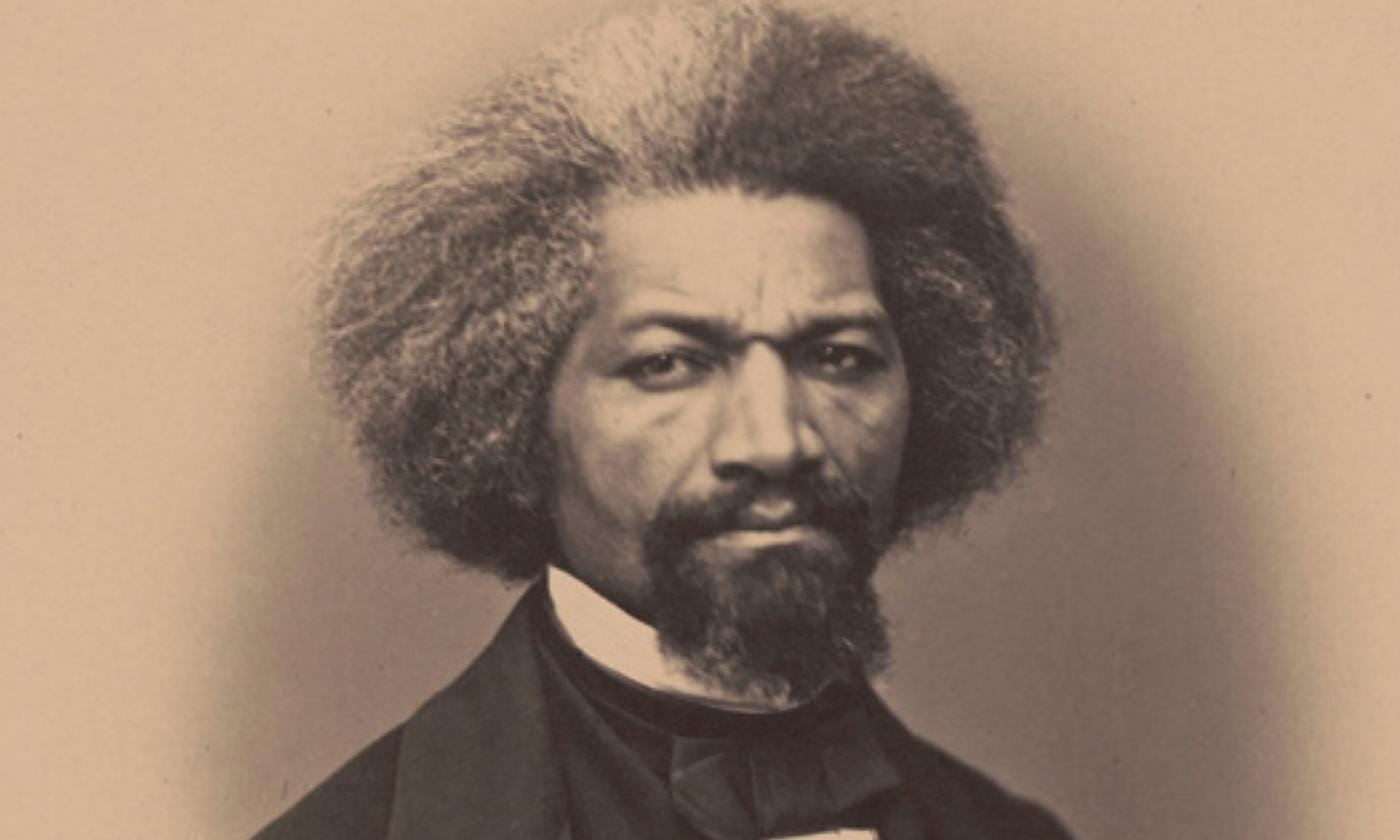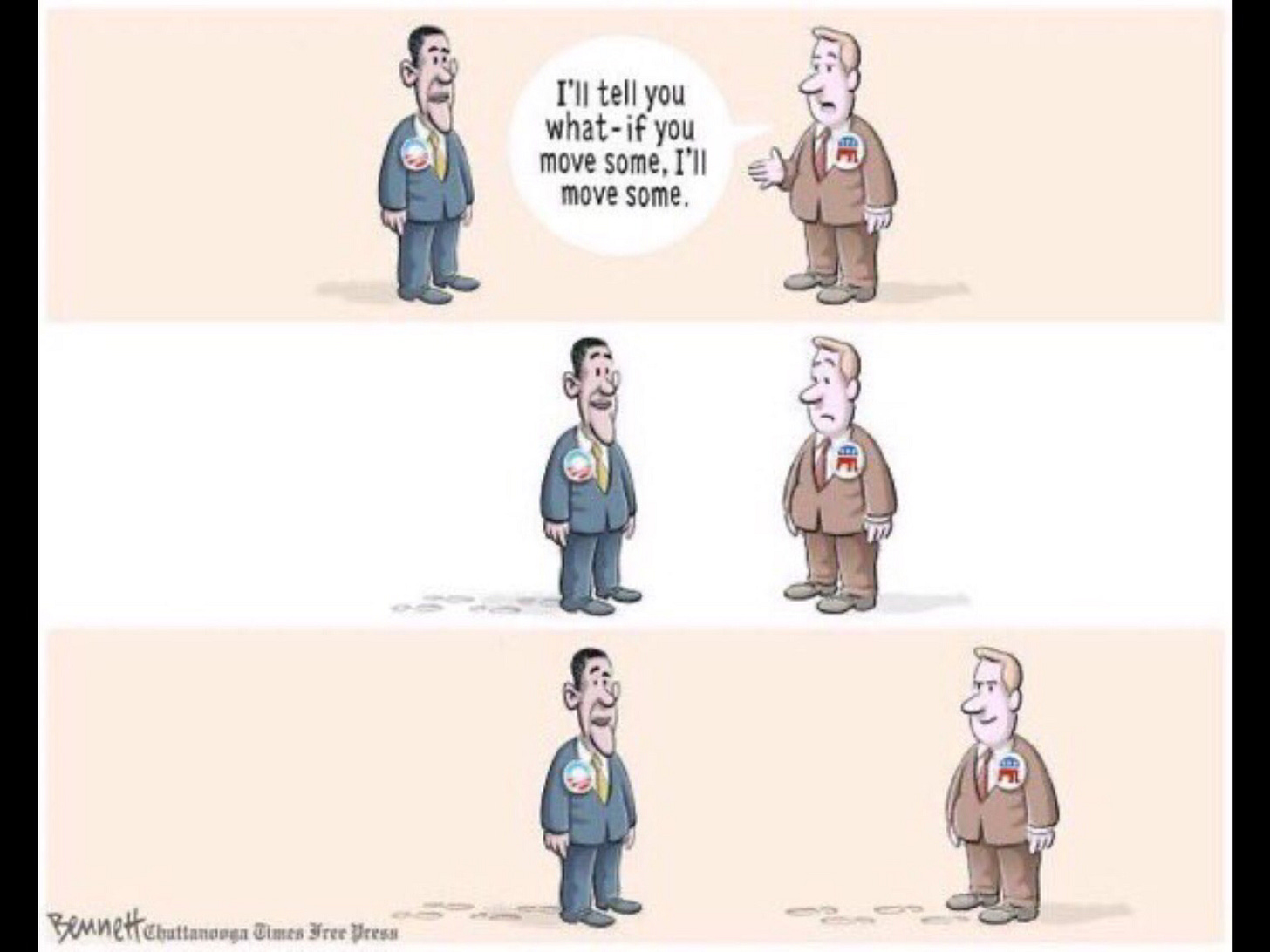Polarization Isn't Always Bad - Often It Is Necessary
Extremism isn't bad because its unpopular, its bad because its wrong. Americans should act like it.
I see a lot of discourse around the idea that we need to get away from the “extremes on both sides” and learn to talk to the other side. They will try to find an example of this, cite it, and then use it as an example of how this or that point has derailed any conversation or common ground, and THAT is why we just can’t seem to get along. They tend to call this “polarization” as if it is some pejorative and verboten thing. They seem to think something being unpopular with them or what they perceive to be the “main stream” as a stand-in for extremism. I do not think this is accurate or fair and simply provides cover for inaction, lack of critical analysis, or, more often than not, is used to shield criticism or being identified as being a supporter of bad ideas.
Now, I think there is some validity to this. If you want to talk about any topic and your interlocuter immediately goes to some crazy example and rails against that example, yeah, it can blow up a conversation. Doubly so if the example is not a position you hold, not a position hardly anyone holds, or, as is sometimes the case, doesn’t exist at all. Remember the kitty litter in class rooms? Or maybe the $300 checks one-and-done for Hurricane Helene victims? What about those completely 100% open borders that Biden had going on? All these examples range from slight misunderstandings and lazy thinking all the way to completely fabricated with the intention to sow confusion. They make having any discussion about classrooms, borders, and FEMA relief much more difficult when you have made-up bullshit floating around the fringes of the conversation, taking up time trying to find the truth of the matter. They are all examples of “extremes” being pointed out as examples of how unbelievable the opposition is, making room for someone who may or may not be an “extreme” to stake out a position that previously would have been untenable.
You’ll also note all of these examples are talking points from only one side of the U.S. political spectrum, almost like its on purpose or something, but we’ll get to that part later.
However, if we turn all clearly defined positions that our opposition may have into “extremes” then it really does preclude finding solutions or common ground. “Extreme” is such a relative term and really explains nothing without any additional context. Really, whenever I hear the words extremist or polarizing anymore, I feel like the person I’m dealing with or reading about isn’t really interested in solutions. Its far easier to label something as “extreme” than break down what the arguments may be. Like “real Americans” or “kitchen tables” it’s a cop out to having to think about a topic and break down the reasons we think what we do about things. Worse than a cop out, its increasingly being used as a cudgel to flatten conversation and argue against taking any kind of action or even having a discussion.
Let’s look at some examples and I think you’ll see what I mean. You really should view anyone who talks about “extreme viewpoints” or “polarizing issues” without discussing the content of those views as suspicious and dishonest.
In 2005, clamoring for same sex marriage – equality under the law, something that is so obvious to anyone who thinks about the constitution for a few minutes – that would be labeled as “extreme”. Activists and LGBTQ folks were told to calm down on that rhetoric. Its too divisive, you see. It upsets grandma and the folks in “real America’. No, no, we should put off equality until the most passive amongst us are willing to grant that “extreme” view an audience. Yet, the arguments persist.
Think about it.
Is it really “extreme” to consider all citizens equal under the law? Is it WILD to think that what other people do with their own lives ought to be of no consequence to others? No, we think this to be table stakes to believe in equality now, not because we have all become more “extreme” but because we shut down the people who kept shouting that at us. It wasn’t extreme them, it isn’t’ extreme now – what is “extreme” is refusing to engage in the discussion and using that word as a catch-all for “critical analysis”. Should we be polarized on whether people are equal under the law? I would think so if it means violating the basic understanding of equal protection, yeah?
Let’s take another example like climate change. You know the trope, the young person, usually a woman, is stereotyped as being a climate “extremist” when they argue for renewable energy initiative or alternatives to fossil fuels in tandem with industrial regulation. They are mocked and cajoled as extremely unserious people because they care about the planet or environment more than they do about the latest video game or sporting event. Even something as robust as the “Green New Deal” is mocked as “extreme climate agenda” when they, and look at this, want cars to simply be more efficient, and put a comparatively small amount of money into renewable energy research. More efficient vehicles are polarizing now? Investing in American infrastructure is polarizing?
No, it is labeled as “extreme” and used as a sledgehammer against anyone who doesn’t toe the status quo. Forget the more “extreme” weather events like a warming planet and more severe storms, forget “extreme” migration crises being caused by a changing climate in parts of the planet, no, those are not extreme.
For these people, doing something ABOUT IT is considered extreme. There is no level of discussion about climate change that they will not use to shut down the discussion and label it as extreme. This was true of the same sex marriage discussions, its true of recognizing trans people, its true on climate change, its true on nearly any issue.
For many conservative folks, and yes, this is an inherently and explicitly conservative position I am arguing against, there is no argument that can’t be labeled as too extreme or polarizing if it means re-examining presumptions about any given topic.

However, this isn’t just a right-wing thing. This also infects both sides of our political landscape. This is a way to avoid discussing hard issues by democrats by distancing themselves from not only what they label as an “extreme position” but from holding any position at all. Too often it is used by folks who genuinely want to have a good discussion but are blinded by their inability to critically examine what they have already decided is just “too polarizing”. Frankly, this is where democrats often suck the most; let me give you a few examples.
School vouchers? Too extreme, oh we should tut-tut about that. Building legislation on guaranteed teacher salary increase, tenure, and massively overhauling the education system to divorce it from property tax and instead, continue the professionalization of teachers? Nah, that is too “extreme”, too polarizing.
Nope, better settle for nibbling around the edges with comments about respecting teachers while not introducing new ideas to reimagine public education. No we won’t consider changing the archaic school year or the lack of investment in early childhood education, those are extreme and “socialist” you see, no, we need what we have now, just more so!
Christian extremism? Oho, we don’t want the 10 commandments in classrooms or pastors on the government payroll. Christian Nationalism is a real problem with these specific churches or pastors for sure, we don’t like their rhetoric or their racist and undemocratic ideals.
But will we reexamine our commitment to invocations and religious practices in public? Will we recognize that it isn’t just a few “bad apples” but the basic tenets of a faith taken to their logical conclusion? Nah, that is “polarizing”, better for us to continue to legitimize religious sectarianism, but do our best to make sure it’s the “right kind” of sectarianism. The idea that maybe we shouldn’t have this kind of belief system encouraged in the public sphere in the first place isn’t even considered by these folks. No, being overtly secular is too extreme, you see.
Water quality in Des Moines is another one! Oh we have to hold these farmers accountable for their rampant polluting of Iowa water ways; making water unsafe to drink and recreation areas unsafe to inhabit! Iowans won’t stand for dirty water! Should we use the resources available to us and actively advocate for change in our farming practices and enforcement of laws? Should we encourage rural folks to show up to take direct action against these practices? No, no that is too extreme. We don’t want to rock the boat you see, because we respect all farmers and the early deaths of our children in urban centers down stream is just the price we’re going to have to pay to avoid “extremism” like naming names or entities doing the polluting. That would just be too much.

You see, “extremism” is just a word people use to justify not taking a position. It is used to flatten conversations and avoid any kind of introspection, especially if the issue is one that may hit closer to home than we like. It is a conservative term, used to justify inaction and to dismiss any kind of dissention with a group or position. This is not to say that extremism as a concept doesn’t exist – it most definitely does – and it can be corrosive to any kind of discussion or problem solving.
But you know what is worse than dealing with an extremist in a position of power?
Dealing with all of the lukewarm purported well-meaning enablers surrounding and protecting them.
Have hard conversations. Consider all positions on their merit. Positions aren’t bad because they are “extreme”, they are bad because they are wrong. Polarization isn’t bad because it makes folks feel a certain way, either. There was a time when my or maybe even your very existence were considered extreme. When birth control was extreme. Where being able to post an article online was extreme and polarizing. When being a woman that got caught reading was extreme. When black people being people was such a polarizing idea that we fought a civil war about it.
If we allow that word to define the rules of discourse, then we are cowardly opting out of any discourse at all. It opens you up to the fallacy of attacking what causes you anxiety and not what the merits of the position is. Just because an idea or position is new or requires more introspection doesn’t make it “extreme”. Extremism is bad because it is harmful, because it is wrong, because it rejects any idea of critical thinking, reason, or being able to take criticism as a non-starter. Just because an idea is simply different or uttered by some group or other that you may not identify with doesn’t make it inherently extreme. It might be just be true.
You should be polarized towards the truth and against lies. Compromising with liars and cheats isn’t a virtue and I really wish Americans would stop acting like it was.





Jason: Your point is well taken. We live in a bipolar world. It’s natural to disagree on political issues. The question becomes how to control that polarization so that reasonable people can disagree, so that the opposites sides of a debate see each other as opponents rather than enemies.
One way for disputes to be resolved is our judicial system. If parties disagree, a law suit is initiated, evidence is presented to a jury, arguments are made following rules of procedure — criminal or civil, a finder of fact (a jury or a judge) makes findings, and a judge applies the law to the facts and a judgment is rendered. When the country was founded, a the British judicial system was in well established so it was easy adopted to the American system.
In the political arena, the founders wanted to establish a democratic system, but they were plowing new ground. How to ensure the voice of the people is heard while preventing unwise decisions to be made. The solution arrived at was three co-equal branches of government.
The legislature was divided into two houses. The House of Representatives is most responsive to the immediate will of the people. Representatives service a term of two years, which makes them most responsive to the voters who can elect whoever they find acceptable. Every two years the entire House must stand for reelection. When the House passes legislation, it must then be approved by the upper chamber — the Senate.
Every state, regardless of size or population has two senators. The Senate was designed to carefully consider the legislation proposed by the House. The Senate, being a smaller body was able to take its time and weed out legislation which, for one reason or another, is not good. Senators serve a term of six years and every two years one third of the senate stands for reelection. The founders wanted the senators to be both intelligent and wise — how to find such people?
A gatekeeping system was necessary to insure a sufficient amount of democracy while preventing mob rule. The solution was to allow each state legislature to select the senators. The people elect the legislature according to the state constitution, so the legislators would be in the best position to send their most prominent men to serve as United States Senators. — in 1913, the 17th Amendment allowed for direct election of senators. Unlike Representatives, who run in a small portion of each state, Senators are elected by the entire population of each state.
The chief executive was also a concern. The founders did not want to establish a monarchy or dictatorship. So they decided a system to prevent incompetent or corrupt individuals from obtaining that office. The solution was to establish the electoral college — again, each state legislature would select from among their most prominent citizens, electors who would chose the best individual to be the President of the United States. Abraham Lincoln, in a speech delivered in Lewistown, Illinois noted that the founder establish out system to prevent tyrants from deciding the people with
That system broke down in the early 1800 because it was obvious that the country was divided along certain lines — political as well as geographical. Political parties, under the direction of people like Thomas Jefferson and James Madison began to evolve. The parties became the gatekeepers to prevent unqualified men from becoming the President. For decades, the parties met in convention and, again, the most prominent men from each state == State Senators, governors, special interests, etc would gather and choose the candidate to to represent the values of the each party in the general election. I think it was unfortunate that the Electoral College was never abolished, but still the Parties did become the gate keepers of the political process.
The fact is, there are different views of political issues. Some people believe in a system of Social Insurance others want a “every man for him self” system. Some want reproductive freedom, others want the state to make our choices. Some want a progressive tax system and others want the system to favor the top earners and the expense of everyone else. On and on it goes. Those and other issues are opposite ends of the political poles, just a north and south are opposite ends of a magnetic pole. Political parties afford us the opportunity to gather with likeminded people to pursue the best policies. Likewise, the two parties each articulate the positions and sent legislative goals so that democracy proceeds in an orderly manner. This is why our two party system must be protected. Abolition of the two party system as the gatekeeper of democracy would result in chaos.
The points you made in your essay are well taken and the essay was very well written. Bravo!
Amazing post. Another good example, I think, was how early opposition to the carbon capture pipelines in Iowa started as "extreme left wing environmentalists" but after they gathered Republican support it was about "common sense property rights". It's all about the messaging and messengers.